Australian sport’s 30 most influential women of the past 30 years
From grand slam champions to gold medal winners, these are the inspirational women who have shaped Aussie sport over the past 30 years.
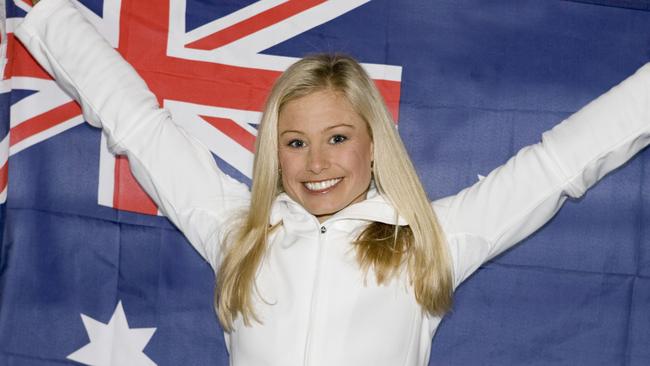
Women's sport
Don't miss out on the headlines from Women's sport. Followed categories will be added to My News.
From trailblazers to contemporary stars, women’s sport in Australia has undergone seismic changes in the past 30 years.
Teams such as the Australian women’s cricket side, Matildas and Diamonds have put their sports on the map nationally and helped the growth of their respective sports at grassroots level.
Then there’s been the introduction of NRLW and AFLW, shaping the future of the country’s two biggest football codes, along with the W-League.
These are the women who have shaped Australian sports more than any other in the past 30 years, listed in no particular order.
Watch every match of the 2021 NAB AFLW Competition LIVE on Kayo. New to Kayo? Try 14-Days Free Now >>
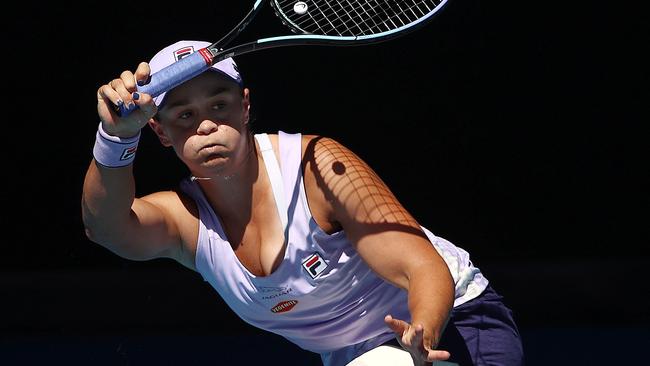
Ash Barty
Barty initially burst onto the scene as a 15-year-old, taking out the Wimbledon girls’ singles title in 2011. But three years later, she took a break from tennis during which she played cricket for the Brisbane Heat in the inaugural Women’s Big Bash League. Since returning from her two-year hiatus, the current world no. 1 has skyrocketed. The proud Ngaragu woman won her first WTA title in Kuala Lumpur in 2017. Two years later, Barty won her first Grand Slam, beating Czech teenager Marketa Vondrousova in the final of the French Open. Australians adore the 24-year-old for her unwavering sportsmanship on and off the court. In a sport seemingly filled with racquet-smashing spoiled brats, Barty is a breath of fresh air. And who doesn’t love a good Barty Party?
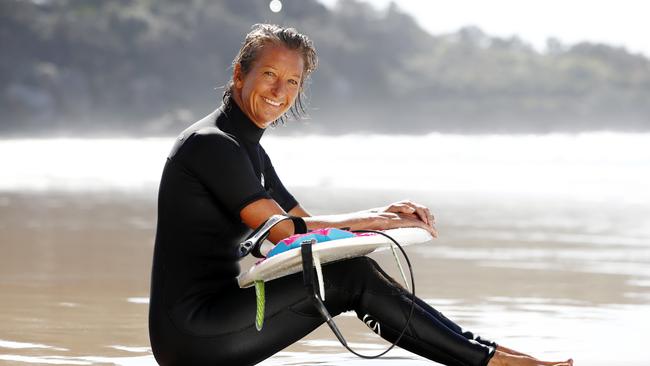
Layne Beachley
To this day, kids take up surfing because of Layne Beachley. The seven-time world champion is arguably one of the best athletes to hit the waves. Beachley claimed six consecutive titles between 1998 and 2003 and remains the only surfer — male or female — to achieve this feat. She won her seventh in 2006 and retired in 2008. Beachley was awarded with an Officer of the order of Australia in 2015 and is currently chairperson of Surfing Australia.
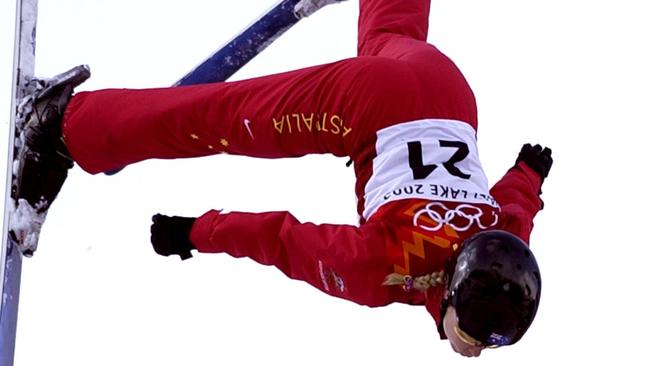
Alisa Camplin
Australia’s first female Winter Olympic champion, Alisa Camplin’s historic gold medal win at Salt Lake City in 2002 was the icebreaker that paved the way for all the others that have followed her.
A former gymnast who transferred her acrobatic skills from trampolines to snow even though she could hardly ski, Camplin won the gold in aerials when she nailed all of her jumps, despite having broken both her ankles a few weeks before the Olympics.
Camplin also won a bronze medal at the 2006 Winter Olympics before retiring from the sport.
In 2019, she was recognised in the Queen’s Birthday Honours for her support of community paediatric health care after losing her first child to a congenital heart condition.
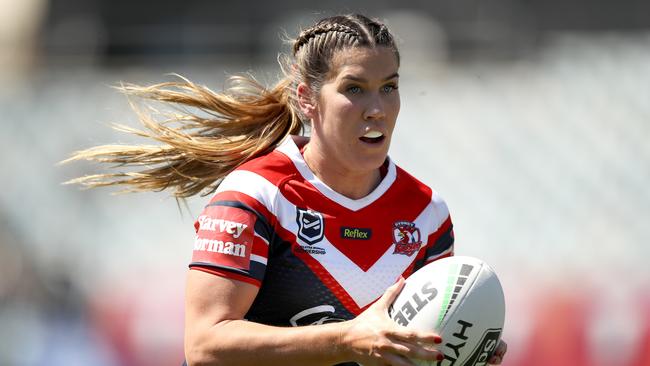
Charlotte Caslick
The face of Australian and World Rugby Sevens. Charlotte Caslick made history with the Australian’s gold-medal winning women’s rugby team at the Rio Games in 2016. The Aussies also took out the World Series that same year. Caslick remains a household name and is a driving force behind the rise of women’s sevens in Australia — girls across the country have picked up footballs because of the 25-year-old, who is currently preparing for Tokyo 2021. Caslick’s influence was reinforced last year, when she signed with the Sydney Roosters NRLW squad — the Olympic champion attracted an unprecedented level of hype and attention to the competition.
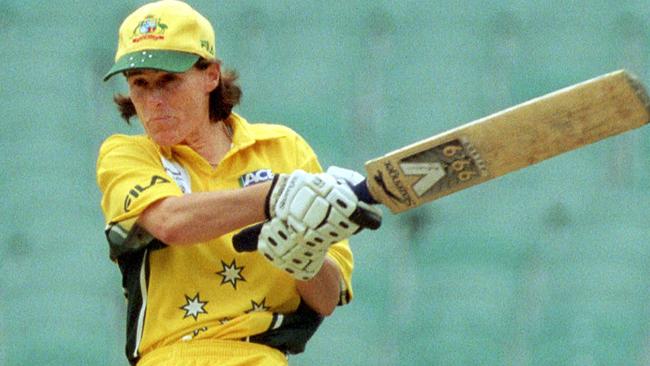
Belinda Clark
Growing up in Newcastle playing in boys’ cricket teams, Clark went on to debut for Australia in 1991, captaining the side from 1994.
She retired in 2005, having played 15 Tests and 118 one-day internationals, during which time she became the first cricketer – male or female – to score an ODI double century and remains Australia’s all-time leading women’s ODI run scorer with 4844 runs.
Clark has been instrumental in encouraging girls into cricket through various roles including Cricket Australia’s general manager of community cricket and has founded a new venture — The Leadership Playground — which aims to inspire girls’ leadership capabilities.
The annual award presented to Australia’s top international women’s cricketer is named in her honour. She was the first female player inducted was inducted into the Australia Cricket Hall of Fame in 2014.
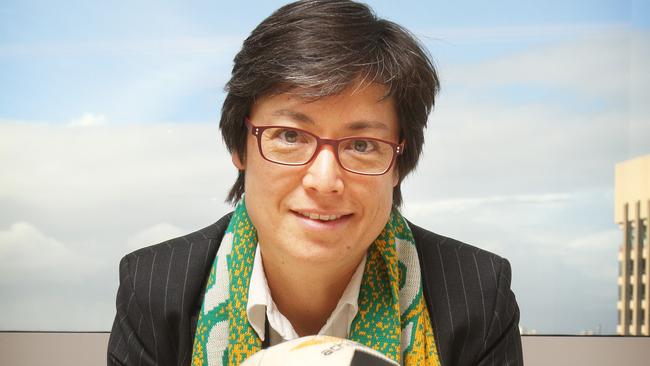
Moya Dodd
The former Matildas vice-captain was capped 24 times, playing for the national team from 1986-1995. But since then, Dodd has become instrumental in reforming the sport, spending a decade on the board of Football Federation Australia (2007-2017), becoming vice-president of the Asian Football Confederation in 2009 and in 2013 named one of the first three women appointed to FIFA’s Executive Committee, some 108 years after the organisation was founded.
In 2015, Dodd led the campaign – #womeninFIFA – to push for a bigger investment in the women’s game as well as to have more women included in FIFA’s decision-making processes. In 2016, FIFA passed a proposal that every continent must have a seat filled by a woman.
Last year, she was a key member of the successful bid to have the 2023 FIFA Women’s World Cup played in Australia and New Zealand.
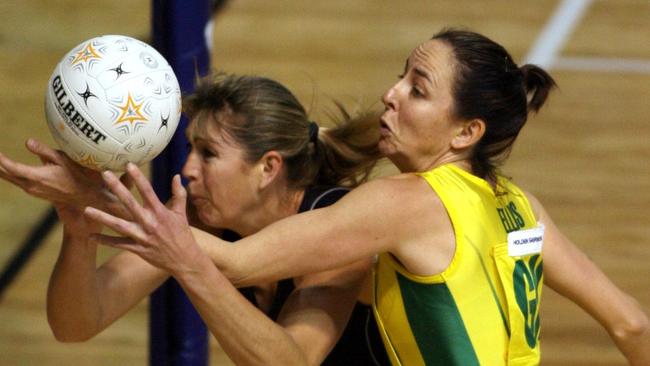
Liz Ellis
She retired from netball 14 years ago, but Liz Ellis remains a household name across Australia. The defender played 122 games for the Diamonds between 1993-2007 and is the national team’s highest capped player in history. Ellis won three world titles, two Commonwealth Games Gold Medals and captained Australia for three years. She won four national titles with the Sydney Swifts and Netball Australia created an award in her honour — the “Liz Ellis Diamond” which is the highest individual accolade an Australian netballer can receive. These days, you’ll find Ellis in the commentary box, calling Super Netball and international Test matches.
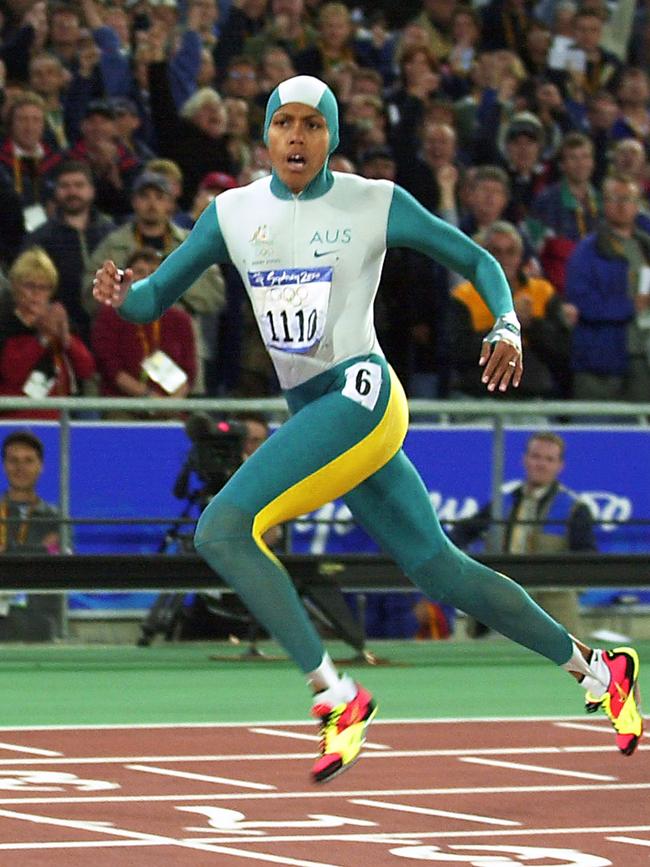
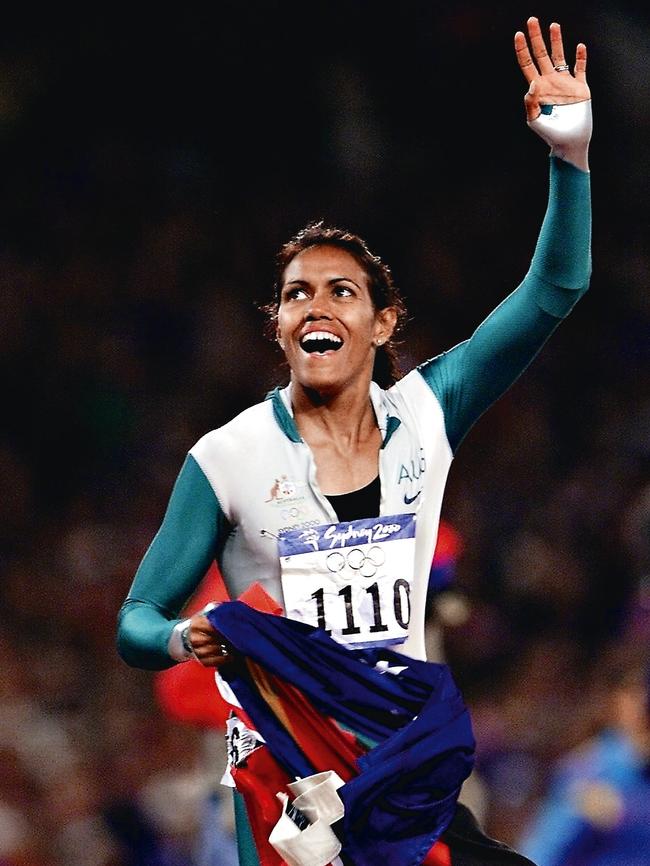
Cathy Freeman
Cathy Freeman really doesn’t need any introduction. A double world and Commonwealth champion runner, her crowning moment came at the 2000 Sydney Olympics.
With the weight of the world seemingly on her shoulders after she was hand picked to light the cauldron at the Opening Ceremony, Freeman duly won the gold medal in the 400m amid unforgettables scenes at the Olympic stadium.
Australia’s most prominent indigenous athlete, Freeman was granted special permission to carry both the Aboriginal and Australian flags on her victory lap and after retiring, she has worked tirelessly for different charities, including starting her own foundation working with remote indigenous communities.
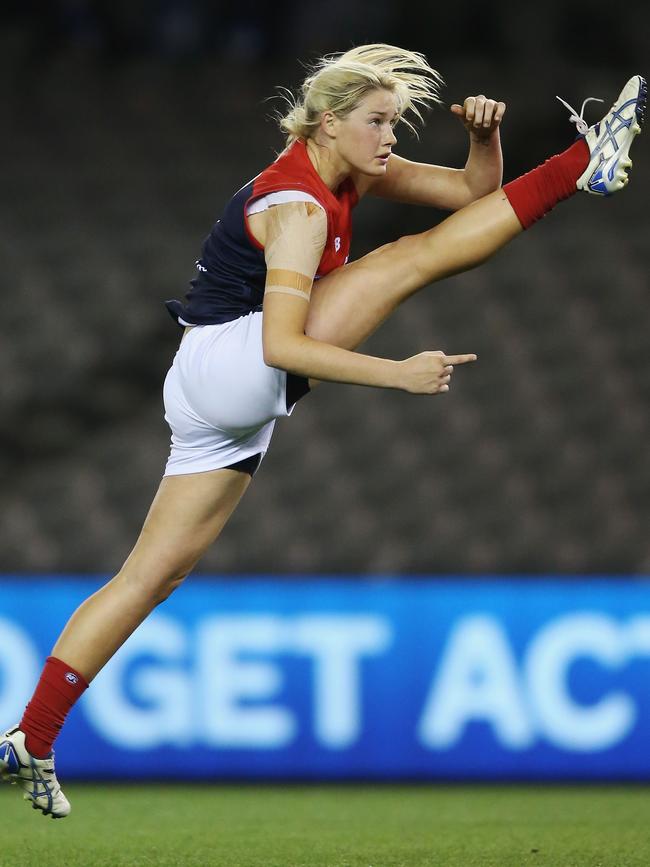
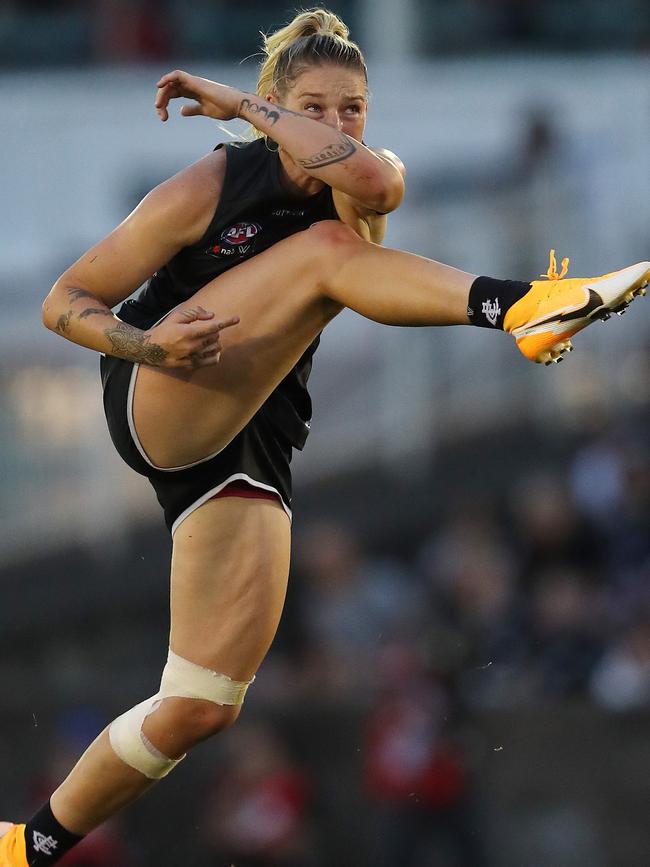
Tayla Harris
Not only a three-time All-Australian AFLW footballer but Harris is the reigning Australian super welterweight titleholder and is yet to be beaten in eight professional boxing fights.
The Carlton star has kicked 28 goals in 34 games (and counting) across five seasons of AFLW. And she’s only 23.
Long after her sporting career is finished, Harris will be remembered for “the kick” – the spectacular photograph that was taken in 2019 of her mid-flight in a kicking action, which will be transformed into a statue. When the image was posted on social media, Harris became the target of sexualised online trolling, to which she spoke out against and started a movement fighting against disrespect towards women.
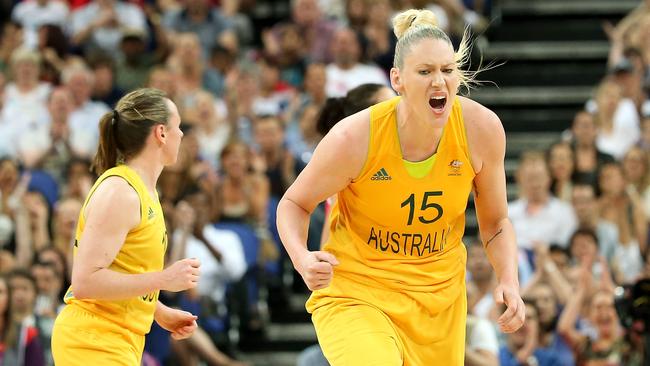
Lauren Jackson
The first Australian to go in the first round of the WNBA draft. The Seattle Storm picked Lauren Jackson with the first overall pick in 2001 when she was just a 19-year-old. The forward led Seattle to two WNBA championships in 2004 and 2010 and was named Most Valuable Player on three occasions. She is the only player to have their jersey retired by the WNBA franchise. Jackson represented the Australian at four Olympic Games and carried the Australian flag into the London Opening Ceremony. She won three Olympic silver medals (2000, 2004, 2008) and one bronze (2012). Jackson and the Opals made history in 2006 when they won WIBA gold medals at the World Championships. Since retiring in 2016, Jackson has been inducted into the Australian Basketball and Sport Australia Halls of Fame and is currently Basketball Australia’s Head of Women in Basketball.
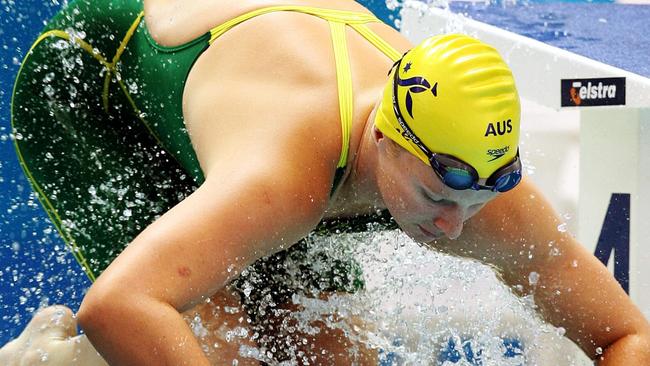
Leisel Jones
The only Australian swimmer to compete at four Olympics — and win medals each time — Leisel Jones burst onto the world stage when she won two silvers in breaststroke as a 15-year-old at Sydney in 2000.
By the time she finished her stellar swimming career, more than a decade later with another silver at the 2012 London Olympics, Jones had a record nine Olympic medals in her collection, including three golds, plus a stack of world and Commonwealth titles.
Jones has been open about her battles with depression during her career, and now works as an ambassador for wellbeing support services and has forced a successful career in media.
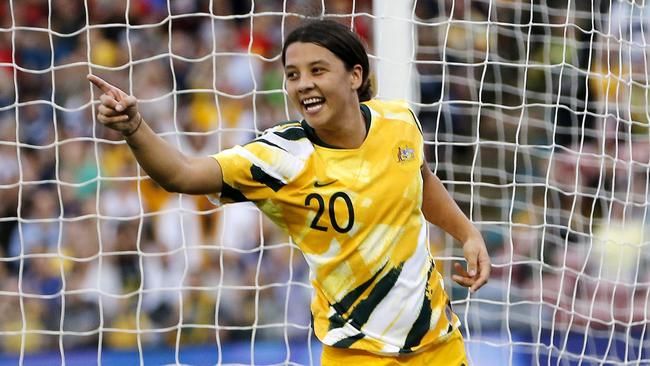
Sam Kerr
One of Australia’s greatest football players, Sam Kerr put women’s football on the map. Known for finding the back of the net, and her backflip goal celebrations, the forward is the captain, heart and soul of the Matildas. Kerr made her W-League debut in 2009 at the age of 15 before signing with the Western New York Flash for the inaugural National Women’s Soccer League in 2013. She went on to also play for Sky Blue FC and the Chicago Red Stars and is currently the US league’s all-time leading scorer. Kerr has been part of the Matildas squad since 2009, representing Australia at the Rio Olympic Games and three FIFA Women’s World Cups (2011, 2015, 2019). She will no doubt be key for the Matilda’s in Tokyo 2021 and the 2023 World Cup.
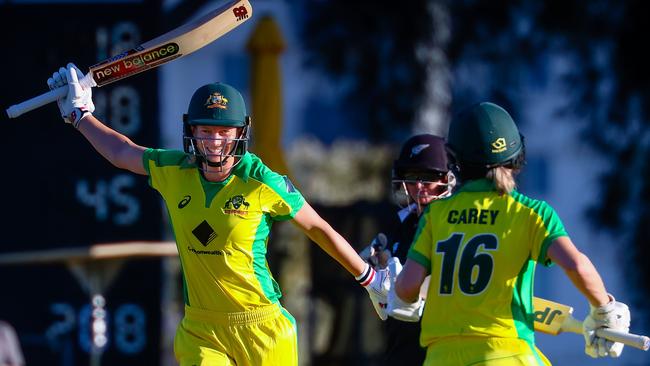
Meg Lanning
On March 8, 2020, a new Australian record was set for the greatest number of spectators to attend a stand-alone women’s sporting event. On that day, 86,174 people packed into the MCG to watch the Australian Women’s Cricket Team beat India by a convincing 85 runs to win back-to-back ICC T20 World Cup titles.
The experience, level-headedness and tactical nous of Aussie captain, Lanning, was vital in the team’s success not only at the tournament, but in eventually breaking that spectator record.
Batter Lanning — who has one of the best cover drives in the business — has been captaining the national side since 2014, having debuted for Australia four years earlier.
Has an incredible 14 one-day international centuries to her name.
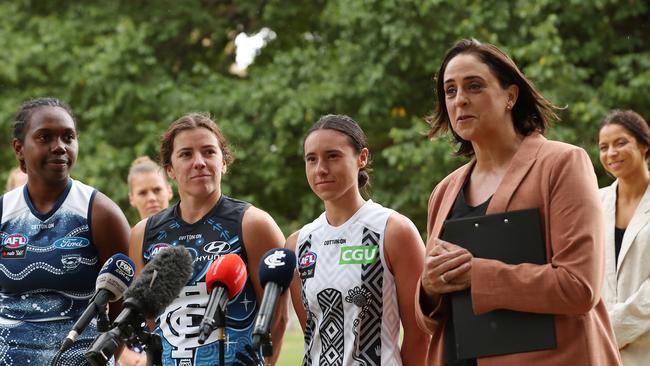
Nicole Livingstone
In 1992 Livingstone became Australia’s first woman’s backstroke Olympic medallist since 1948, and only its third in the history of the Games, when she a bronze medal in the 200m backstroke in Barcelona.
After retiring from competition in 1996, she followed up her swimming career by embarking on a successful broadcast media career, as well as sitting on the board of Swimming Australia as well as promoting drug-free sports in Australia through the Australian Olympic Committee’s “Live Clean, Play Clean” program.
Is now progressing women’s sport through her high-profile role as the AFL’s head of women’s footy, a position she’s held since 2017, overseeing expansion of the AFLW to a nine-round, 14-team competition, with the participation of girls at grassroots level now rapidly rising.
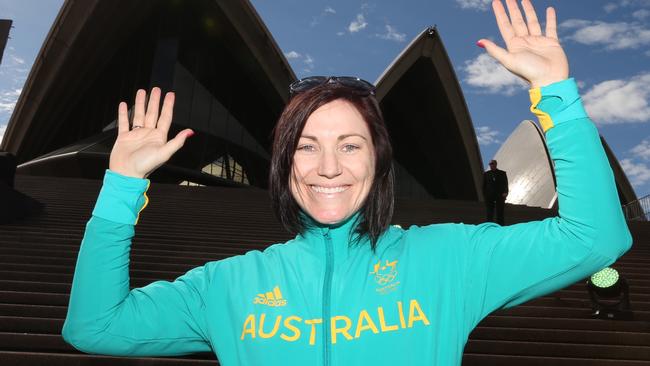
Anna Meares
The most successful female track cyclist in history, Meares has 11 world champion titles and six Olympic medals to her name.
At her first Olympics in Athens back in 2004, she won the 500m time trial, becoming the first female Aussie track cyclist to win a gold medal.
Her sprint cycling silver medal in China in 2008 will be most remembered because it came only a staggering seven months after she broke her neck in a race fall in Los Angeles.
Australia’s flag-bearer and captain at the Rio Olympics in 2016, she won a bronze medal in what would be her final Olympic appearance.
Meares continues to wield influence as an advocate and became a foster carer in retirement.
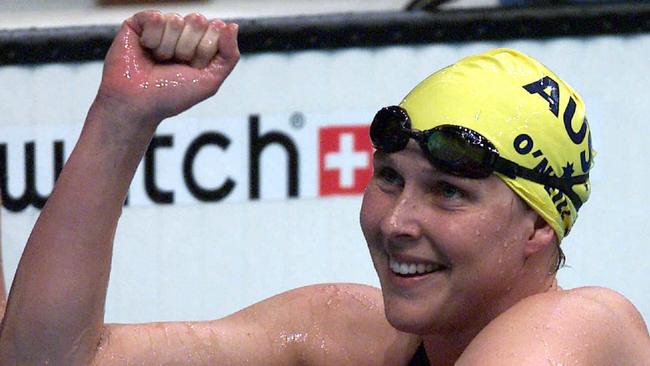
Susie O’Neill
The only Australian female swimmer, other than the legendary Dawn Fraser, to win individual gold medals at more than one Olympic Games.
Nicknamed ‘Madame Butterfly’, O’Neill won the 200m butterfly gold at Atlanta in 1996 then the 200m freestyle in Sydney four years before a shock loss in her signature event.
O’Neill retired with a staggering tally of 67 medals from all international competitions.
Married to an ophthalmologist, she became an ambassador for the Fred Hollows Foundation, co-hosts a popular breakfast radio show in Queensland and even released a hit single.
Not surprisingly, she’s officially recognised as a legend of Australian sport.
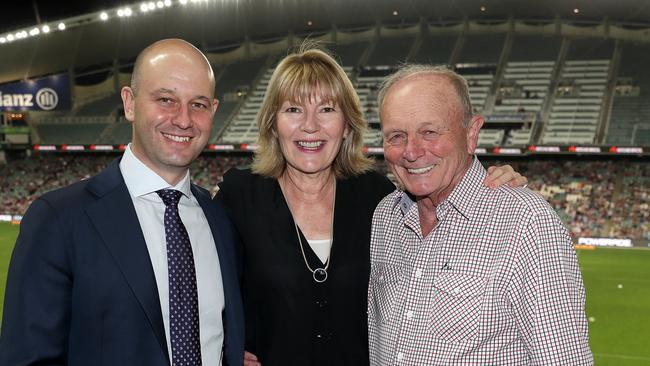
Katie Page
The first woman to be elected to the board of the NRL — or any major sporting board — Harvey Norman Chief Executive Katie Page is a force behind women’s sport in Australia. Page has allocated millions of dollars in sponsorship towards women’s rugby league, AFL, netball, motor racing, football and horse racing. She founded the NRL’s Women in League round.
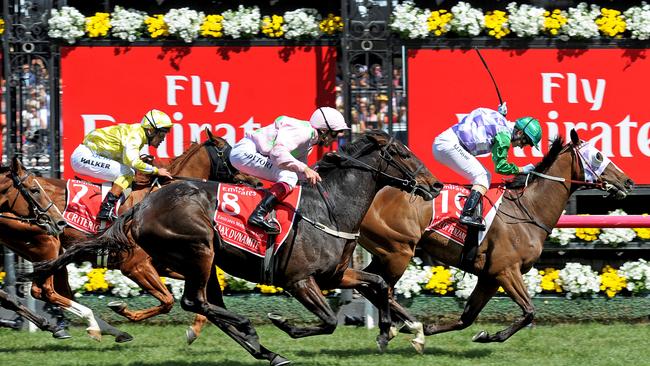
Michelle Payne
The only female jockey to win the Melbourne Cup, Michelle Payne won the race ‘that stops the nation’ in 2015, on board 100-1 longshot Prince of Penzance.
Her speech after the race was just as memorable as her ride. Wearing the same colours as the suffragettes, she attacked the male dominated sport for being chauvinistic and told her detractors to “get stuffed.”
Payne’s win was all the remarkable given the serious injuries she had sustained from race falls in her career, including a fractured skull, prompting movie makers to do a feature film about her life – entitled Ride Like a A Girl.
Earlier this year, she was recognised in the Australia Day honours.
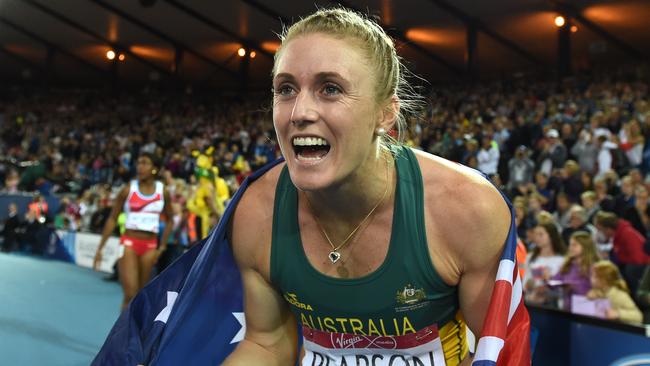
Sally Pearson
Known as Sally McLellan before she married her high school sweetheart Kieran Pearson in 2010, she was Australia’s premier track and field star for well over a decade.
Her first major international medal in 100m hurdles was a silver at the 2008 Beijing Olympics, which she followed with gold medals at the 2010 Commonwealth Games, 2011 world championships then the 2012 London Olympics.
Injury forced her to miss her Olympic defence at Rio in 2016 and although she rebounded to win a second world title at London in 2017, she retired in 2019 to start a family, giving birth to her daughter Ruby last year.
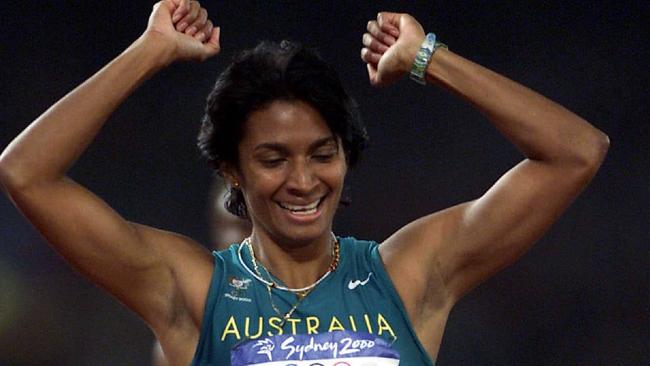
Nova Peris
Australia’s first indigenous Olympic champion, Nova Peris was a member of the Hockeyroos squad that won the gold medal at the 1996 Games in Atlanta.
A gifted athlete, she switched sports to track and field and won two gold medals at the 1998 Commonwealth Games, and ran in a final of a relay at the Sydney Olympics.
After she retired from sport, Peris turned to politics and in 2013, she became the first Aboriginal woman to be elected to the federal Senate, representing the Northern Territory.
She left politics in 2016 but continues to serve as an ambassador and strong advocate for indigenous Australians.
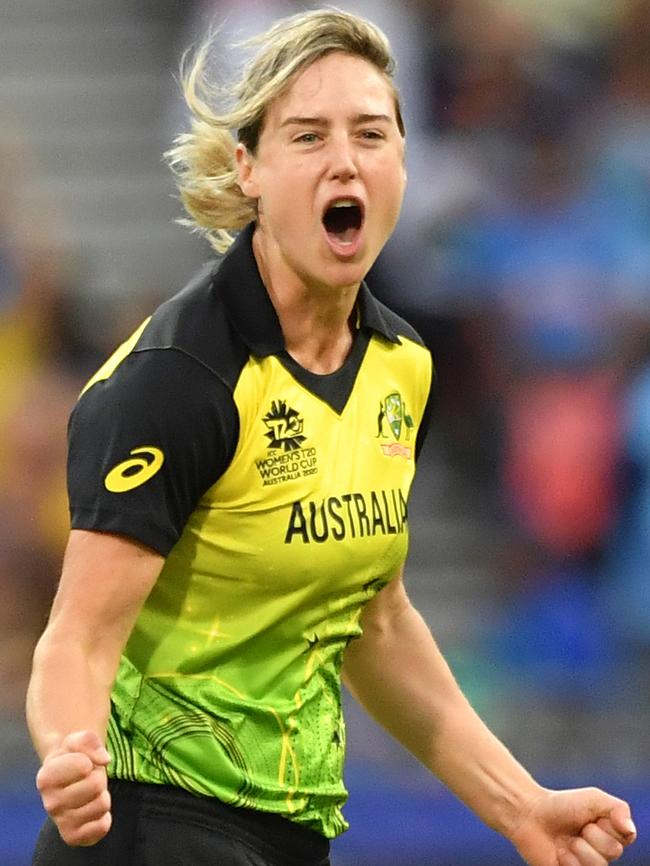
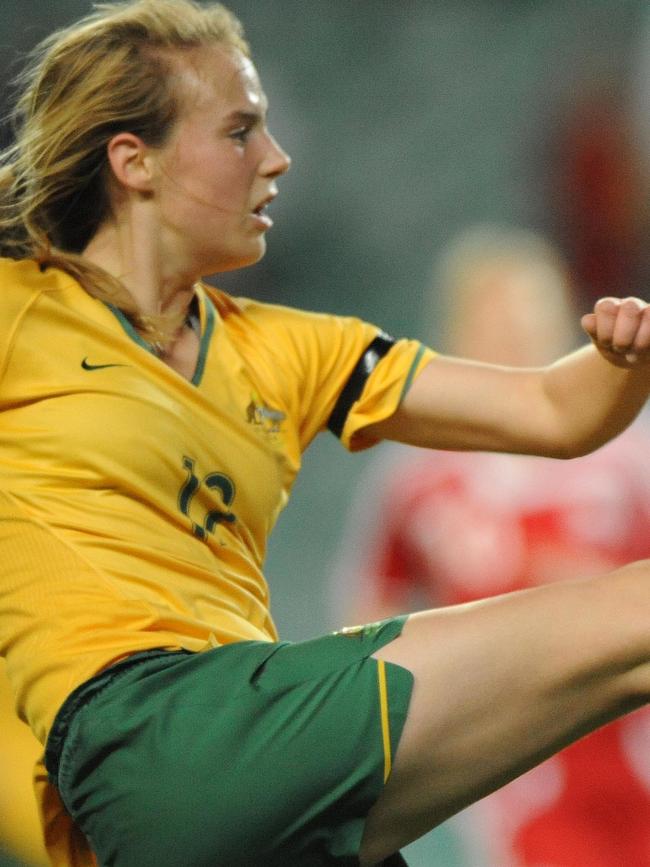
Ellyse Perry
Often described as the greatest cricketer Australia has produced in the past 50 years, Perry debuted in the green and gold aged 16 in 2007 and since then has played eight Tests, 112 one-day internationals and 120 Twenty20 international games, compiling more than 4800 runs across the three formats (including an unbeaten Test 213) and taken 297 wickets.
A genuine all-rounder she’s been pivotal in increasing the profile of women’s cricket, and is the first and only women cricketer in history to complete the double of 1000 runs and 100 wickets in T20I cricket.
In December last year, she won the Rachael Heyhoe Flint Award as the ICC’s Female Cricketer of the Decade, while also claiming both the ODI and T20I Cricketer of the Decade awards.
She’s also a former Matilda’s defender, having been capped 18 times for Australia’s national soccer team.
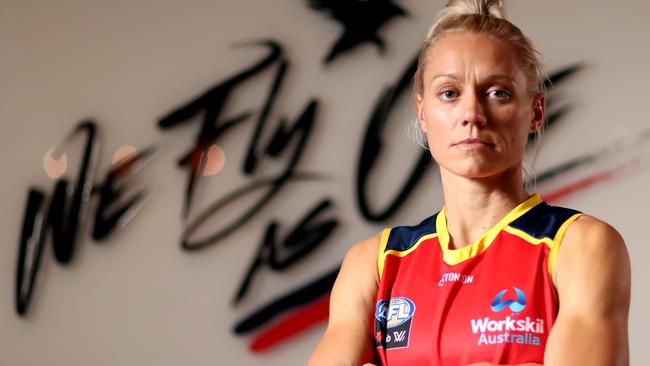
Erin Phillips
A two-time Olympic basketballer with the Opals, Phillips has played in both the United States and Europe. Among her round-ball accolades, she was part of Australia’s gold medal-winning side at the 2006 World Championships and won silver at the 2008 Beijing Olympics.
She has two Australian WNBL titles to her name and has won two championships in the biggest female basketball league in the world: the WNBA.
Since retiring from basketball in 2018 after a glittering career spanning 16 years, Phillips has returned to her childhood sporting love, Aussie Rules footy.
She has flourished and gone on to become the most highly decorated player in the AFLW’s five-year history, winning two premierships with the Crows, two Grand Final best on ground medals, two AFLW league best and fairest honours, two Adelaide club championships and dual AFLW Players Association MVP accolades.
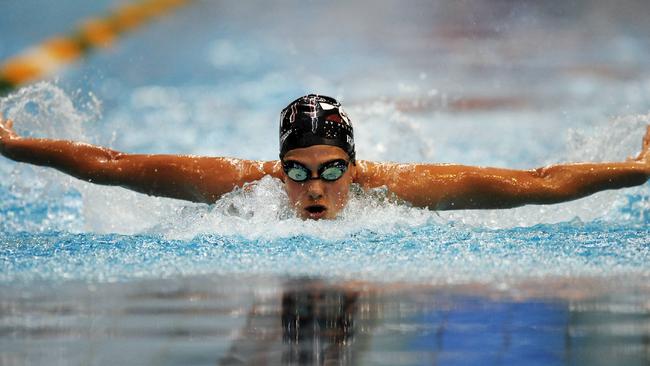
Stephanie Rice
Three races: three world records and three trips to the top of the podium.
That was Stephanie Rice’s incredible haul from the 2008 Beijing Olympics, where she melted the hearts of Australia with her feats in the pool.
Although she never won a world title — finishing her career with two silver and five bronze medals — Rice’s stunning wins in the two individual medley events and a relay in Beijing made her an inspiration for the next wave of Australian female swimmers.
Since hanging up her goggles, Rice has developed a successful career in television and marketing and launched an Olympic swimming academy in India, a country that has never won an Olympic medal in the pool.
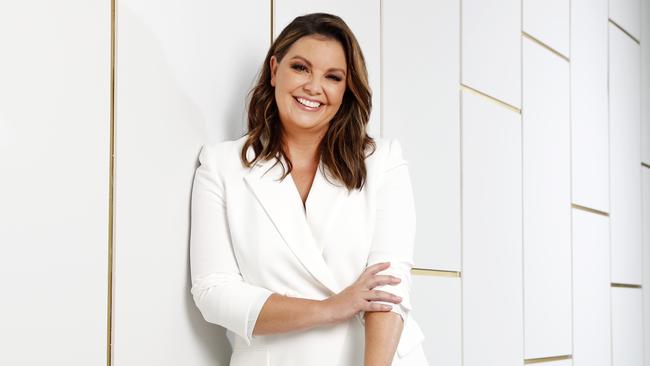
Yvonne Sampson
When Yvonne Sampson speaks footy, even ‘The King’ Wally Lewis listens.
Sampson is more than the face of Fox League alongside Matty Johns – she is a commentator, interviewer, analyst and damn fine sport and news journalist.
Sampson’s influential power, and cut through, lies in her credibility and knowledge of the game of rugby league.
Equally at home in the broadcast studio, on the sideline or in the boardroom, Sampson has been a driving force in the acceptance of women in the game of rugby league.
Sampson joined Fox League when it launched on Fox Sports in 2017 after an impressive stint at Nine that included hosting Nine’s Friday Night Football and was a regular sideline commentator for Nine’s rugby league coverage before moving on to host the Sunday Footy Show. To cap off her outstanding achievements, Yvonne became the first female to spearhead the coverage of Nine’s State of Origin series.
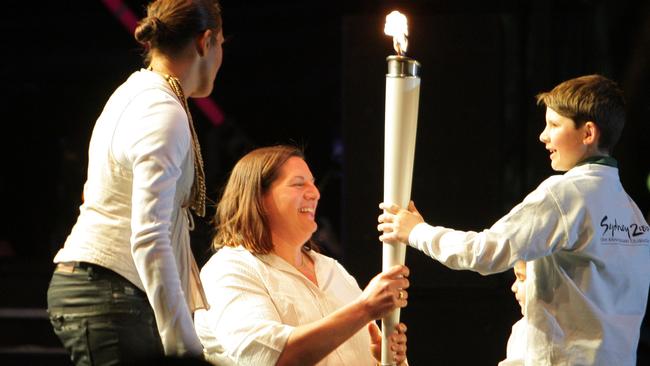
Louise Sauvage
One of sport’s greatest wheelchair racers, Louise Sauvage won nine gold medals at the Paralympics as well as more than a dozen world titles from distances ranging from as short as 800m, right up to marathons, which she won plenty of as well.
When she quit racing, she became a successful coach, and started up her own consulting company. She is also in demand as a motivational speaker and an advocate for athletes with disabilities.
Inducted into the International Paralympic Hall of Fame, she has received countless honours for her achievements. She lit the cauldron at the Sydney 2000 Paralympics, even has a ferry named after her and has inspired countless others.
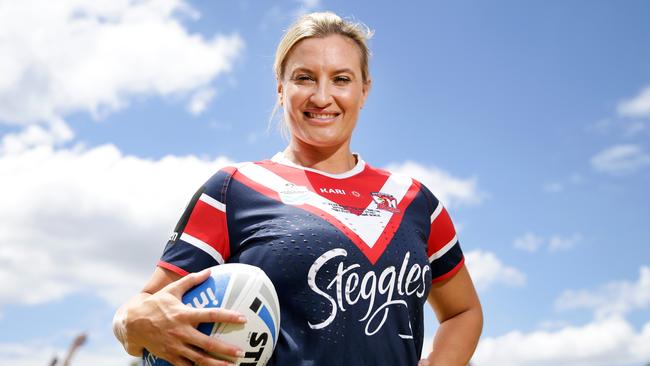
Ruan Sims
An Australian Jillaroos, NSW Blues and Sydney Roosters legend, who put women’s rugby league on the map. Sims grew up playing rugby league, but switched to rugby union in pursuit of more opportunities. She represented Australia in the 2010 Women’s Rugby World Cup in England, but could never quite shake her love for league. Sims returned to the 13-woman game and made her Jillaroos debut at the 2013 Women’s Rugby League World Cup. She led the NSW Blues to their first State of Origin victory in 2016 and co-captained Australia’s World Cup winning side in 2017. She played for the Sydney Roosters in the inaugural NRLW season and announced her retirement from elite footy at the end of 2019. Sims is now a key analyst, reporter and commentator with Channel Nine’s NRL team.
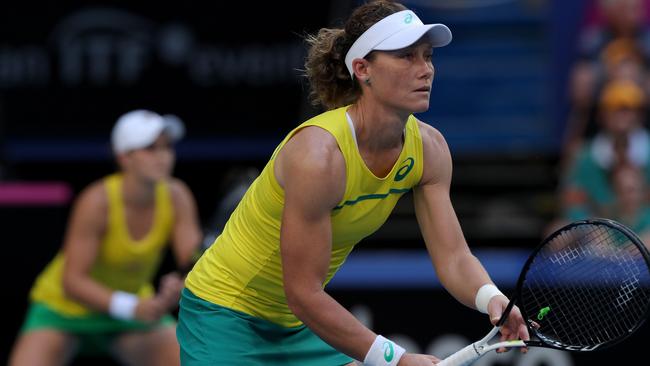
Sam Stosur
Became the first Australian woman since Evonne Goolangong to win a grand slam when she pulled off a stunning upset win over Serena Williams in the 2011 US Open final.
Although she was one of the best players in the world and had made the final of the French Open the previous year, Stosur was given no chance against Williams, yet beat the American in straight sets in New York on the 10th anniversary of the 9/11 terror attacks.
Stosur has also won three grand slam crowns in doubles, where she was ranked No. 1 in the world, as well as three more in mixed doubles.
Notoriously private about her personal life, Stosur revealed last year that her partner Liz had given birth to a daughter.
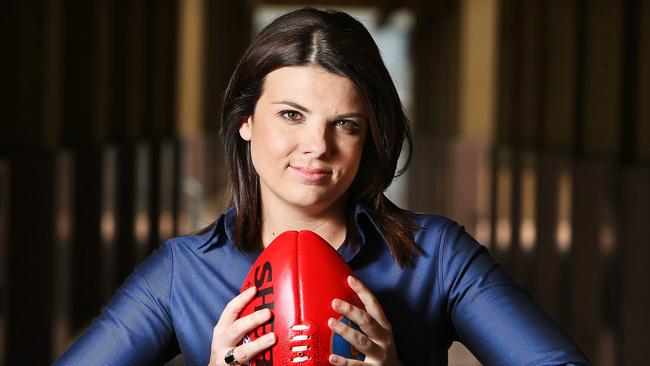
Kelli Underwood
Underwood paved the way for a new generation of female sports broadcasters in 2009 when she became the first woman to call a televised AFL match, joining Tim Lane in the Channel 10 commentary box for a pre-season game between Geelong and the Adelaide Crows. Underwood went on to call her first AFL premiership season match on July 18, 2009 alongside Anthony Hudson when Geelong took on Melbourne and did ball-by-ball commentary for the network until 2011.
Since, she has called AFL for ABC Radio and has covered all AFLW seasons since the league’s inception in 2017.
Underwood returned to AFL commentary in 2020 for FOX Footy. Now hosts Offsiders on ABC TV, as well as co-hosts of The Back Page on Fox Sports.
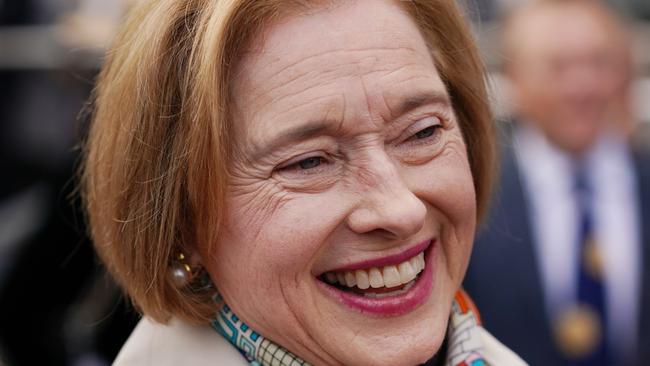
Gai Waterhouse
In 1992, a decade and a half after she’d started working for her father, the legendary horse trainer TJ Smith, Gai Waterhouse was finally granted her own licence to run a stable from Sydney’s Randwick racecourse.
Almost 30 years later, she has rewritten the record books, winning seven Sydney trainer’s premierships and 144 Group One races, including the 2013 Melbourne Cup with Fiorente and seven Golden Slippers.
Dubbed ‘Australia’s first lady of racing’, few big races or honours have eluded her with Waterhouse inducted into the Sport Australia Hall of Fame, labelled an Australian Living Treasure and given an Australia Day gong earlier this year.
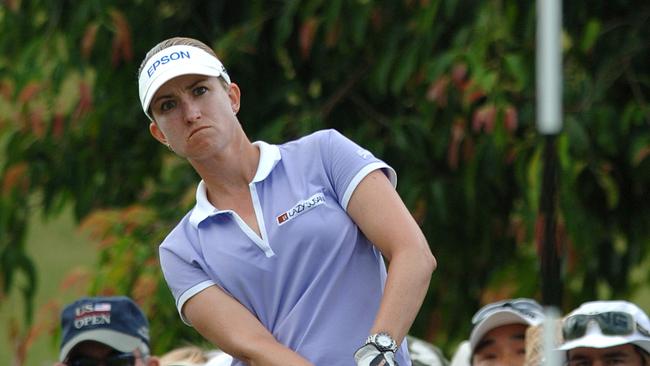
Karrie Webb
With seven majors under her belt, Karrie Webb is Australia’s most successful professional golfer, of either gender.
Of the six LPGA Tour events that have given major status during Webb’s playing career, she has won five of them.
The only one to have escaped her grasp is the Evian Championship, held in France, which was elevated to a major in 2013. Webb finished runner-up in 2014, losing by a single stroke.
Her overall achievements have opened the way for a new wave of Australian players to come through, including Hannah Green, winner of the 2019 Women’s PGA Championship, and Minjee Lee, a five-time winner on the LPGA Tour.


